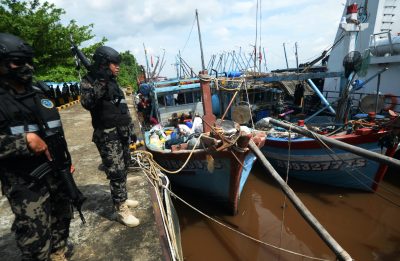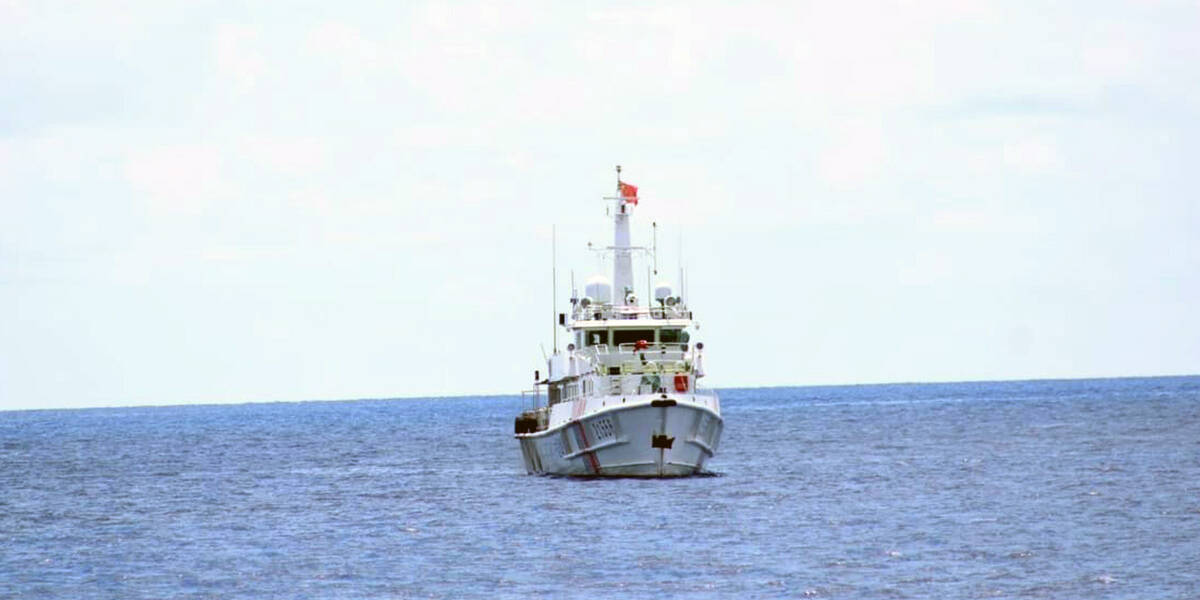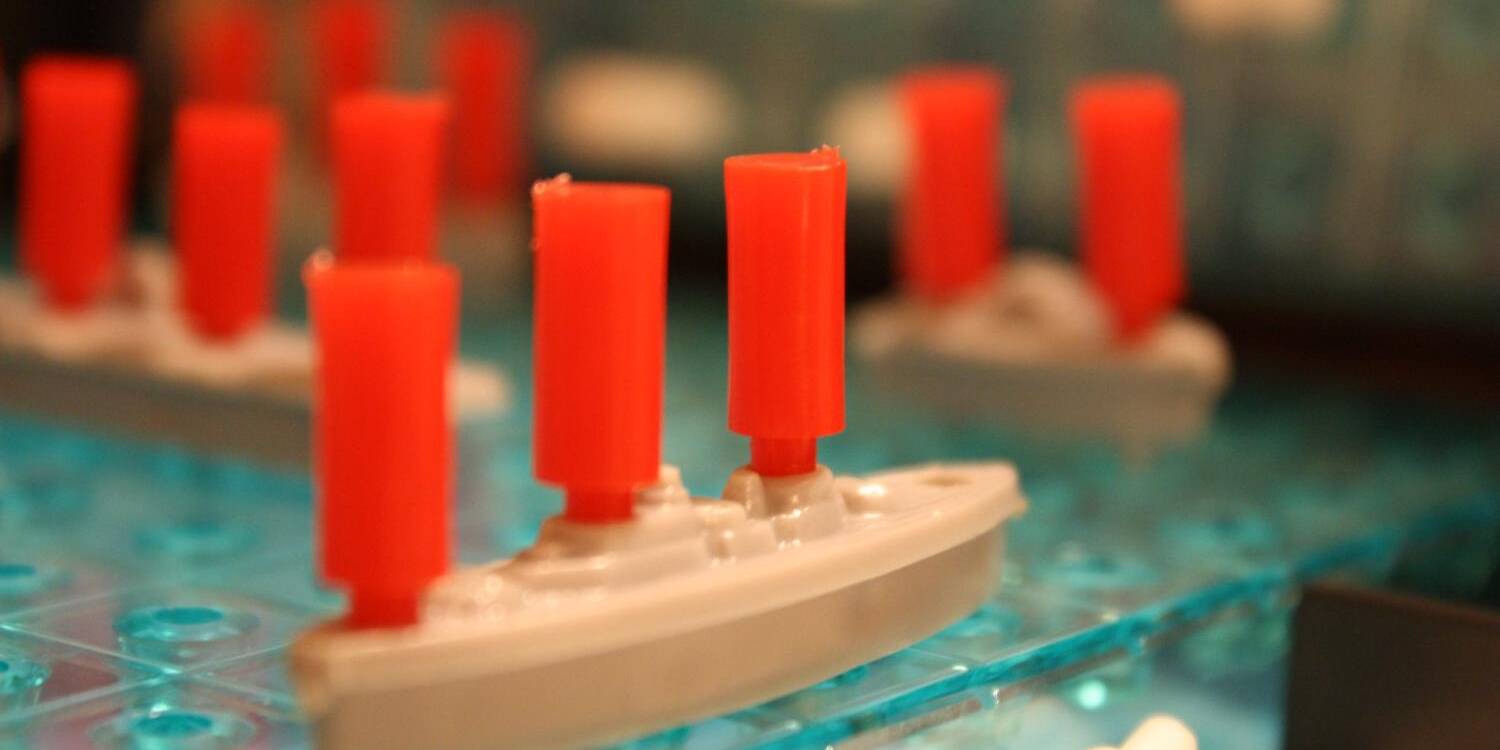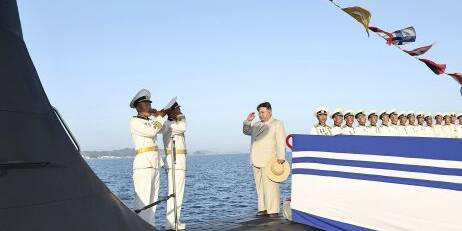Xuan Dung Phan, RSIS, for East Asia Forum
Overlapping exclusive economic zone (EEZ) claims in the waters surrounding the Natuna Islands in the South China Sea have been an irritant in Vietnam–Indonesia bilateral relations for decades. Pending an EEZ delimitation agreement, the two Southeast Asian neighbours should promote confidence-building measures to better manage the dispute.

Vietnam and Indonesia signed an agreement on a continental shelf boundary in 2003, but the EEZ between the two states in the North Natuna Sea remains contested. Due to competition over jurisdiction in these waters, Vietnam and Indonesia frequently clash over the issue of illegal, unreported and unregulated (IUU) fishing.
In 2017, a Vietnamese coast guard vessel reportedly intercepted an Indonesian attempt to escort Vietnamese boats that were caught fishing in the disputed waters. The incident resulted in an Indonesian officer being held by the Vietnam Coast Guard. A diplomatic squabble took place in 2019 when Indonesia destroyed 38 Vietnamese flagged vessels accused of engaging in IUU fishing. Hanoi protested the action, arguing that Jakarta wrongly arrested Vietnamese fishers. The latest incident was in late March 2021 when the Indonesia Coast Guard arrested two Vietnamese fishing vessels that Vietnam claimed were operating in their waters.
So far, both countries have tried to manage the dispute amicably. Top Vietnamese and Indonesian defence officials have pledged to treat fishers humanely and not resort to the threat or use of force.
There is also political will from both sides to end the current state of uncertainty. Since 2010, Vietnam and Indonesia have engaged in 12 rounds of talks on EEZ delimitation. The latest one took place in 2019. The two Southeast Asian neighbours have expressed a desire to expedite the negotiation process and are discussing a provisional guideline to prevent further maritime spats.
The conclusion of EEZ delimitation talks will strengthen Vietnam–Indonesia bilateral ties and allow the two countries to better address the shared concern of IUU fishing. Experts have long suggested that Southeast Asian states solve intra-regional maritime contestation to enhance coordinated efforts to push back against Chinese maritime expansionism. As the Vietnam–Indonesia overlapping EEZ claims lie within China’s nine-dash line, a delimitation agreement will further showcase both countries’ rejection of Beijing’s unlawful claims.
The issue has become protracted because of conflicting legal perspectives. Vietnam favours a single boundary for both the continental shelf and the EEZ. Indonesia insists on treating the EEZ and the continental shelf as two separate legal regimes and thus favours the equidistance principle as the method of demarcation. Reaching an agreement will require mutual understanding and accommodation from both sides.
The continued maritime encounters in the North Natuna Sea may erode trust and pit public opinion in the two countries against each other, undermining the negotiation process. To better manage their dispute, Hanoi and Jakarta should engage in confidence-building measures pursuant to Article 74(3) of the United Nations Convention on the Law of the Sea. The Article provides that coastal states ‘make every effort to achieve a provisional arrangement [pending a maritime delimitation agreement]’.
Both countries should establish provisional zones in the overlapping areas for joint fisheries exploitation. This is a common practice among states with unresolved maritime boundaries. A temporary measure such as this allows both parties to address fishery issues cooperatively while bypassing the bilateral dispute itself. A Vietnam–Indonesia fishery agreement should include provisions on maritime conservation as well as a joint jurisdiction arrangement.
There are strong incentives for Hanoi and Jakarta to pursue this provisional arrangement. For Vietnam, its fishers will be able to expand their operations. In recent years, many Vietnamese fishing boats have been forced to fish offshore due to depleting inshore fish stocks and Chinese assertiveness in the South China Sea. For Indonesia, it could enlist the Vietnam Coast Guard to support it in fending off China’s claim to traditional fishing grounds that cover their overlapping EEZ.
In addition, the two countries should jointly conduct public information campaigns to raise awareness among Vietnamese fishing communities. Many Vietnamese fishers who engaged in IUU fishing have limited knowledge of neighbouring coastal states’ maritime boundaries and maritime laws. Workshops should be held in the Vietnamese Provinces of Khanh Hoa, Ba Ria-Vung Tau and Binh Thuan, the origins of many fishing vessels Indonesia has apprehended in recent years.
Finally, Vietnam and Indonesia should step up coast guard cooperation. In 2017, the two countries signed a letter of intent to enhance coast guard cooperation to ensure maritime security and safety in areas around the continental shelf boundary. Both sides should conduct frequent exchanges, as well as joint training exercises focussing on search and rescue, combating IUU fishing and countering piracy.
As political and economic heavyweights of Southeast Asia, Vietnam and Indonesia should demonstrate that they can manage their bilateral disputes amicably and in accordance with international law and the ASEAN way of consultation, consensus and non-confrontation. Efforts in this regard will enhance mutual trust between the two countries and ultimately facilitate EEZ delimitation.
Xuan Dung Phan is a graduate student and research assistant at the S Rajaratnam School of International Studies (RSIS), Nanyang Technological University, Singapore, and a member of the US–Vietnam Next-Generation Leaders Initiative at the Pacific Forum.
Link to the original article can be found here.
Related Analyses
September 15, 2024
West Philippine Sea: Several factors force BRP Teresa Magbanua to return – PCG
0 Comments1 Minute


